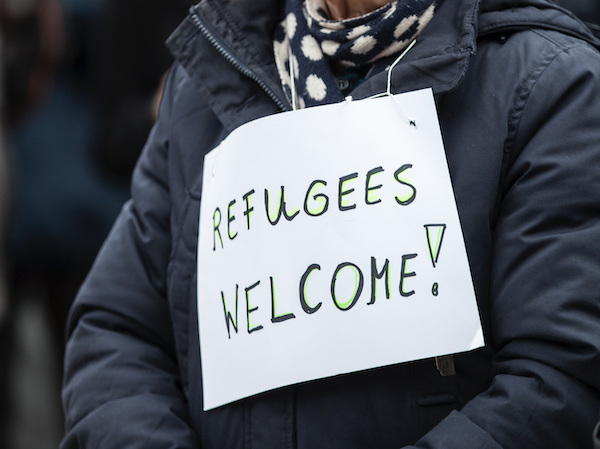Dutch sign deal with Uganda to house rejected asylum seekers

The caretaker Dutch government has signed an agreement with Uganda about setting up a transit hub for rejected asylum seekers, justice minister David van Weel has told MPs.
The plan, drawn up by the far right PVV when part of the coalition, aims to create a centre where people whose claims were refused in the Netherlands can be sent before being returned to their countries of origin.
Van Weel, who is responsible for asylum and migration, signed the deal with his Ugandan foreign minister Odongo Jeje Abubakar during the United Nations General Assembly in New York on Thursday.
“We need to look at what we can do,” Van Weel said. “That is why we and Uganda are taking this step. Of course, the protecion of human rights is primary for the people who return to their countries of origin via Uganda.”
Migration researcher Lucy Hovil told RTL Nieuws earlier that most refugees in Uganda live in camps in poor areas where “both refugees and local people struggle to survive.”
Concerns have also been raised about political repression and security. Uganda passed a harsh anti-LGBT law two years ago and has been accused of backing rebels in eastern Congo to gain access to minerals.
“Although most asylum seekers are safe in Uganda, the authorities do not tolerate dissent,” Hovil said.
The idea of the return hub was first raised during a visit to Uganda last October by then foreign trade minister Reinette Klever, who only told prime minister Dick Schoof about the controversial plan once her visit was over. He went on to describe the plan as “innovative“.
“There is a lot of pressure on Van Weel to close the deal quickly,” RTL’s political reporter Roel Schreinemachers said. “The VVD wants to be able to show results on migration in the election campaign.”
The Netherlands will vote for a new government on October 29.
No details about the cost of the plan or what concrete measures will be take to protect the rights of people sent to Uganda have yet been made public. Van Weel did say that the deal involves a small-scale trial with a limited number of rejected refugees.
Thank you for donating to DutchNews.nl.
We could not provide the Dutch News service, and keep it free of charge, without the generous support of our readers. Your donations allow us to report on issues you tell us matter, and provide you with a summary of the most important Dutch news each day.
Make a donation